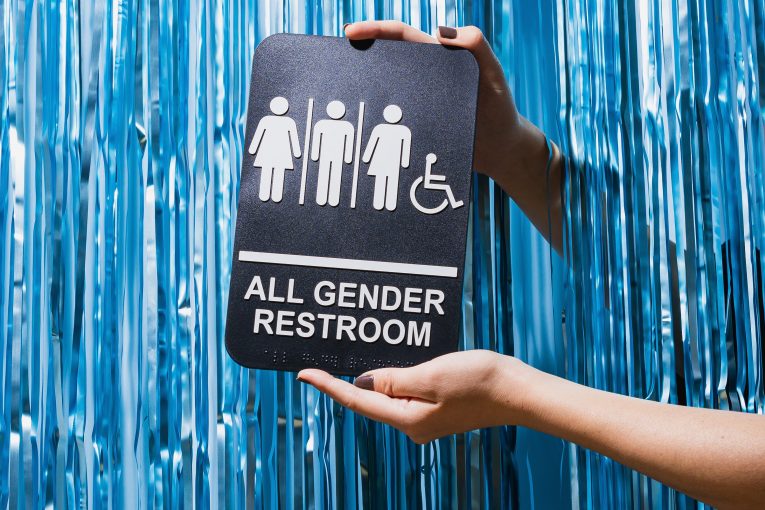
FORT WORTH, TX – NPR News is reporting President Trump’s new Bureau of Prisons (BOP) policy has been put on hold by the courts—the policy sanctioned transgender women in federal prisons to turn in any female-identifying items (i.e. clothing, women’s razors, hair care, and other commissary items).
NPR also reports the order is facing at least two obstacles in federal court; and as of late last week, a judge in Washington temporarily blocked the transfer of three transgender women from a women’s institution and into a men’s institution.
NPR adds the policy followed an executive order from Trump, which obligated the bureau to end gender-affirming care and move trans women out of women’s prisons.
NPR said it reviewed a copy of the new clothing policy last week distributed among inmates at the Federal Correctional Institution (FCI) Seagoville, a low-security men’s prison located in Dallas, Texas.
NPR reports the subsequent reaction of one trans inmate to the policy was, “In here, we do not exist anymore…We are dodos.”
In addition, the inmate tearfully reported that, as of last week, trans women were sanctioned to turn in feminine articles of clothing, such as, female undergarments, reported NPR.
According to NPR, gender-affirming clothing is understood to be a critical component to treating gender dysphoria (a psychological discomfort that results from opposing biological and gender identities). Therefore, the new rules have posed a weighted change for the incarcerated trans community.
NPR adds that at the prison in Texas, transgender women, whose clothes were taken, were later told that their items would be returned—and most had their things returned to their possession (according to the inmate who spoke with NPR).
NPR wrote an employee at Seagoville later confirmed that the clothing policy change had been made known among all federal prisons with trans inmates, and that the trans inmate spoke on condition of anonymity as they were not authorized to talk to the media and feared retaliation.
Employees from prisons are being told that clear directives on policy change involving trans inmates will come directly from the Justice Department; but for now, any future policy changes are on hold, according to NPR: “We just don’t know where they’re going yet,” a prison official said.
According to NPR, in addition to the order to hand over feminine clothing, the Bureau of Prisons policy also initiated the cancellation of training sessions that discuss gender ideology, and disbanding any group programs that advocate for or promote “gender ideology” —including group therapy sessions.
It also revoked an exception that permitted transgender prisoners to request a guard of their gender identity for pat-downs and searches, according to NPR, noting it is unclear where these policy changes stand.
NPR reports that the Bureau of Prisons and the Justice department did not answer their request for comment about Trump’s decision that U.S. policy will only recognize two genders.
Trump’s administration recurrently displays its “gender ideology” and trans issues in the forefront of its policy agenda, asserts NPR, explaining, for example, Trump signed an executive order prohibiting transgender athletes from playing in women’s sports.
According to NPR, some cisgender female prisoners have shown resistance to the incorporation of trans women in female prisons, challenging policy in court, out of fear for their safety, but lawyer Kara Janssen (whose firm has represented the three transgender women challenging the new executive order), argues these efforts have only instilled chaos and fear into the public.
Janssen believes the latest rule change to be not only a violation of precedent (i.e. Prison Rape Elimination Act), but “mean and spiteful,” and NPR reports that she applauds the judge’s criticism of the order, who couldn’t understand how the policy changes promoted public interest.
“Trump’s Executive Order is motivated by hate and fear, not by logic or actual need, and we are thrilled the Court saw it for what it is,” Janssen stated to NPR reporters, who added Janssen and her legal team have explored the new policies introduced at BOP as their legal cases proceed, but claim the uncertainty regarding the new clothing policy only emphasizes the disorder at the agency.
Janssen reports to NPR, “People that we’ve spoken to who are transgender and who are in custody are terrified. They’re terrified that they’re going to lose things that they had to fight years for. Everything is changing every minute, and it is causing increased anxiety.”
NPR reports that other lawyers representing incarcerated trans individuals display their concerns as well, because their clients are being moved to isolated housing units, and await removal to an institution that reflects their assigned sex at birth.
The Guardian also reported that trans women in a women’s federal prison in Fort Worth, TX, were forcibly removed from the cells and placed in isolation, NPR writes, adding their gender affirming care has been threatened and will discontinue as issued by Trump’s executive order.
The Seagoville employee stated their prison hasn’t received any guidelines from BOP on plans to discontinue gender affirming medical treatment or to prepare to forcibly relocate any prisoner to isolation or other institutions—they report officials at the prison have remained compassionate with trans gender inmates, states NPR.
“There’s definitely understanding of the impact, psychologically, on these offenders and there’s utmost care to try to make it as smooth of a transition as can be,” the employee reported to NPR.